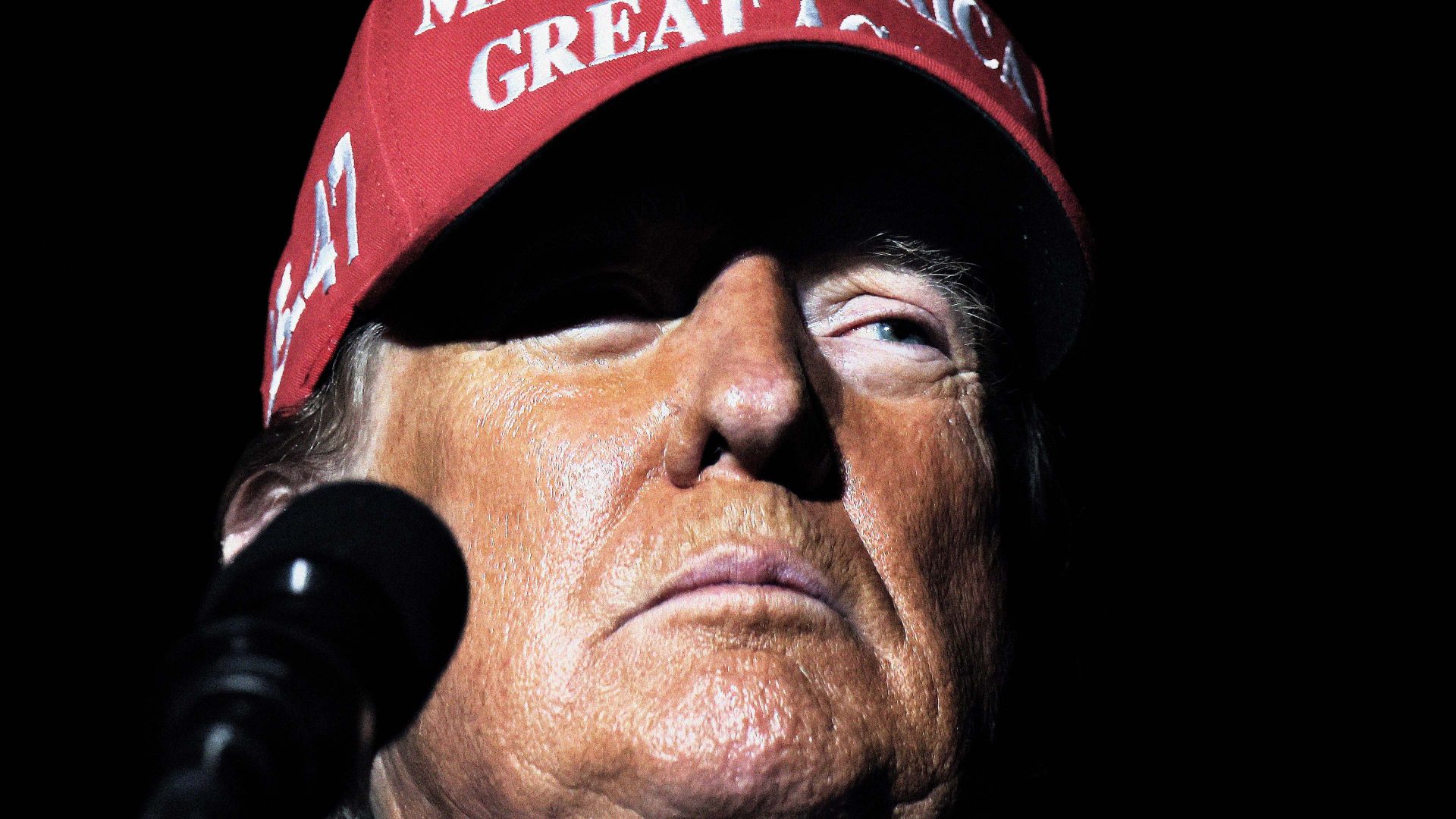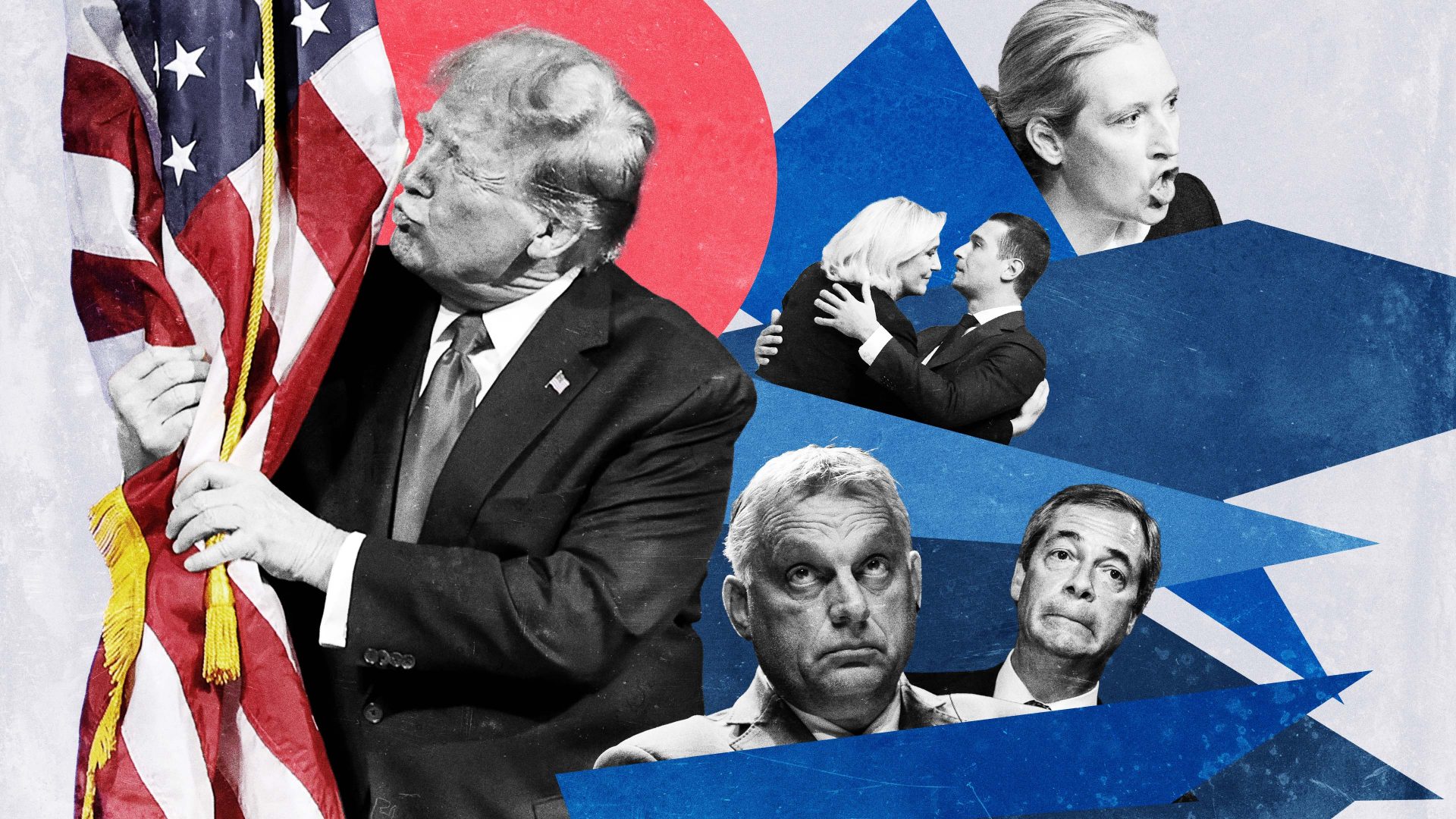It’s all about Donald Trump. It has always been about him. Since he descended the golden escalator to announce his first presidential candidacy in June 2015, he has filled the American sky. When Kamala Harris says that she wants to “turn the page”, she means that it is time to end the era of Trump.
The Democrat nominee may yet prevail on November 5. She has fought an impressive campaign at lightning speed, raised more than $1bn, framed the contest adroitly, assembled a coalition of support that stretches from Alexandria Ocasio-Cortez to Dick Cheney, and shown herself to be, without question, presidential. If you haven’t watched her interview with Bret Baier on Fox News, take a look: this is a seasoned public servant who wants the top job and is more than capable of doing it.
The fact remains, however, that the polls show that she and her opponent are essentially tied, and that the election remains a coin-toss. Which baffles progressives in America and all over the world. How can a convicted felon, found liable for sexual assault, twice impeached, awaiting trial for electoral subversion, possibly be so close to winning a second presidential term?
In an emotional speech in Pittsburgh last Thursday, Barack Obama gave voice to this incredulity, aghast that Trump had accused Joe Biden of withholding hurricane aid from Republican areas and redirecting it to undocumented immigrants: “When did that become okay? I’m not looking for applause right now. I want to ask Republicans out there… When did that become okay? Why would we go along with that?”
It’s the right question, and the answer is, in a sense, straightforward. Trump is still neck and neck with Harris because he is not competing in the same race. He is not trying to beat her in conventional terms or to score points according to the established rules of the game. His quest to regain power is much more primal and much uglier than anything prescribed in the US constitution.
At the heart of his pitch for office is an entirely mendacious but (sad to say) emotionally resonant claim that America is not only besieged but under occupation. In a speech in Aurora, Colorado on October 11, he claimed that “America is known, all throughout the world, as ‘Occupied America.’ They call it ‘occupied.’ We’re being occupied by a criminal force”. On the same day, he tweeted: “I make you this vow: November 5th, 2024 will be LIBERATION DAY in America. I will rescue Aurora and every town that has been invaded and conquered—and we will put these vicious and bloodthirsty criminals in jail or kick them the hell OUT OF OUR COUNTRY”.
On October 13, Trump warmed to his theme, telling Fox News host Maria Bartiromo that there was an even greater danger than “the people who have come in who are totally destroying our country”. His mission was to confront “the enemy from within”, “very bad people, sick people, radical left lunatics”, who could “be easily handled by, if necessary, by National Guard, or if really necessary, by the military.”
Such mad allegations make no sense at all within the framework of modern institutional politics, the party system, the traditional pitch by candidates for election that their policies will solve the problems of the nation. Trump is not presenting himself as a repairman but as a mighty chieftain, uniquely empowered to ward off the terrible forces supposedly menacing America.
Why does this poisonous message cut through in 2024? Because, for all its economic, military and cultural might, America is withdrawing incrementally from its former post-Cold War role as the world’s unchallenged hyperpower. Its 21st century military adventures – Afghanistan and Iraq – have knocked its confidence and radically diminished its collective appetite to be global policeman; a shift dramatised by the ignominious retreat from Kabul in 2021. Trump’s cunning response is to posture as the strongman who prevents wars.
Instead, he offers an entirely manufactured conflict on the home front: against migrants, socialists, Marxists, the media, malicious judges, the Deep State and any other notionally evil force that imperils the republic.
To understand the rise and resilience of the MAGA movement, it is more useful to consult works of anthropology than of political science. In The Golden Bough (1890), J.G. Frazer writes of the intimate connection between the well-being of the king and the security of the tribe: “primitive peoples… sometimes believe that their safety and even that of the world is bound up with the life of one of these god-men or human incarnations of divinity”.
In which context: Trump’s survival of two assassination attempts has bolstered both his followers’ fear that America is under attack and their conviction that he is its indispensable leader. Every time he has been indicted, his popularity has increased and donations have poured in.
Likewise, in his classic essay “How Foreign are you?” (1962), the social anthropologist Max Gluckman explored the primordial origins of xenophobia and the extent to which “in some tribal systems groups of people exist only in enmity to others”. Again, it is to this emotion that Trump appeals; stoking the fires of a forever war against the “Other”, whether it is gangs in Aurora, pet-eating Haitians in Springfield, Ohio, or communist agitators in Congress.
In his absurdity, he also plays the folkloric role of the Trickster: the joker, liar and lord of misrule who knows that his pranks and nonsensical declarations will distract and confuse his foes. When Trump claims, as he did at a town hall meeting in Miami last Wednesday, that January 6, 2021, was “a day of love”, his opponents are understandably appalled, and dismiss such tasteless drivel as further evidence that he is psychologically unstable and unfit for office.
The trouble is that this scorn is – at least for now – matched by the love of his supporters. Those who stand by Trump do so because of his gall and rudeness, not in spite of it. They positively embrace his coarseness and open contempt for the system.
On Saturday, the New York Times ran a somewhat prim report from Pennsylvania accusing him of descending to “new levels of vulgarity” with his “crude and vulgar remarks” – including Trump’s remarks about the late Arnold Palmer’s penis size and his demand that the crowd at Latrobe send a message to Harris: “We can’t stand you, you’re a shit vice president”.
This is indeed abhorrent stuff. It should have no place in 21st century democratic discourse. But the former president doesn’t care about such norms or decencies. He revels in his disdain for decorum, speech codes and self-restraint. In so doing, he appeals to something as old as humanity: the dark instincts lurking in the brainstem and limbic system.
It is a grave error to assume that modernity has banished these primordial sensations, or to imagine that rationality has excised all the ancestral emotions of our species. Trotsky understood this completely. “Not only in peasant homes, but also in city skyscrapers, there lives alongside the twentieth century the thirteenth,” he wrote in 1933. “A hundred million people use electricity and still believe in the magic powers of signs and exorcisms. Movie stars go to mediums. Aviators who pilot miraculous mechanisms created by man’s genius wear amulets on their sweaters. What inexhaustible reserves they possess of darkness, ignorance and savagery!”
Trump also grasps this, albeit instinctively rather than intellectually. He intuits that, in our hypermodern world, there remain deep reserves of ancestral sentiment, just waiting to be mobilised. Like any fabulist, he understands that exaggeration, hyperbole and outright fabrication can still drive home a powerful message.
When, at the ABC News presidential debate last month, he claimed that “they’re eating the dogs, the people that came in, they’re eating the cats”, Harris’s bemused expression spoke volumes. She was thinking: well, I won this round.
The trouble is that Trump was thinking exactly the same thing. Whether or not the former president really believed his growling incantation, he knows how to make a signal cut through the noise. Nonsensical as it was, this claim drove the issue of immigration right to the top of the news agenda, exactly as he and J.D. Vance had hoped.
American Nativism is not new. The Know Nothing Party of the 1850s, the Ku Klux Klan, George Wallace, the Tea Party movement: all have harnessed its malevolent power. But Trump has made it the principal creed of the Republican Party, in a fashion quite at odds with the politics of Ronald Reagan, the Bushes, John McCain and Mitt Romney.
In this respect, he has been greatly assisted by the weaponising power of digital media. One of the great ironies of the web has been that a technological revolution expected at its inception to mobilise rationality, global conversation, democracy, science and tolerance has also been a round-the-clock factory of superstition, conspiracy theories, bigotry, magical thinking and lies.
The weakest argument made by Democrats is that a significant number of voters will suddenly become aware of Trump’s dreadful character and behaviour. No public figure on the planet has been more scrutinised, discussed and analysed. For nine years, he has been the orange maypole around which the free world has danced nervously. It is ridiculous to imagine that the US electorate does not know exactly who and what he is.
In an excellent piece on the US news site The Bulwark last week, Jonathan V Last argued that “we are witnessing the collapse of the rationalizations we’ve made for why Americans were open to Trump”. He is absolutely right, and his warning should be heeded by progressives the world over, who have conspicuously failed to come up with a robust response to the populist, nationalist movement.
Win or lose, Trump has been consistently supported by between 47 and 51 percent during this campaign. Whatever happens on November 5, that should be enough to convince liberals in America and elsewhere that what they are offering is no longer sufficient.
The New Right will not be decisively defeated by the resumption of “business as usual”; by the swing of the (non-existent) pendulum back to the centre; by fact-checking; by data viz; by the “credentialism” of experts; by summits in Davos; by the self-proclaimed “return of the grown-ups”. If anything, that strategy will exacerbate the problem.
We should have learned that by now. But we haven’t, have we? Meanwhile, a rough beast slouches once again towards Washington to be born.




